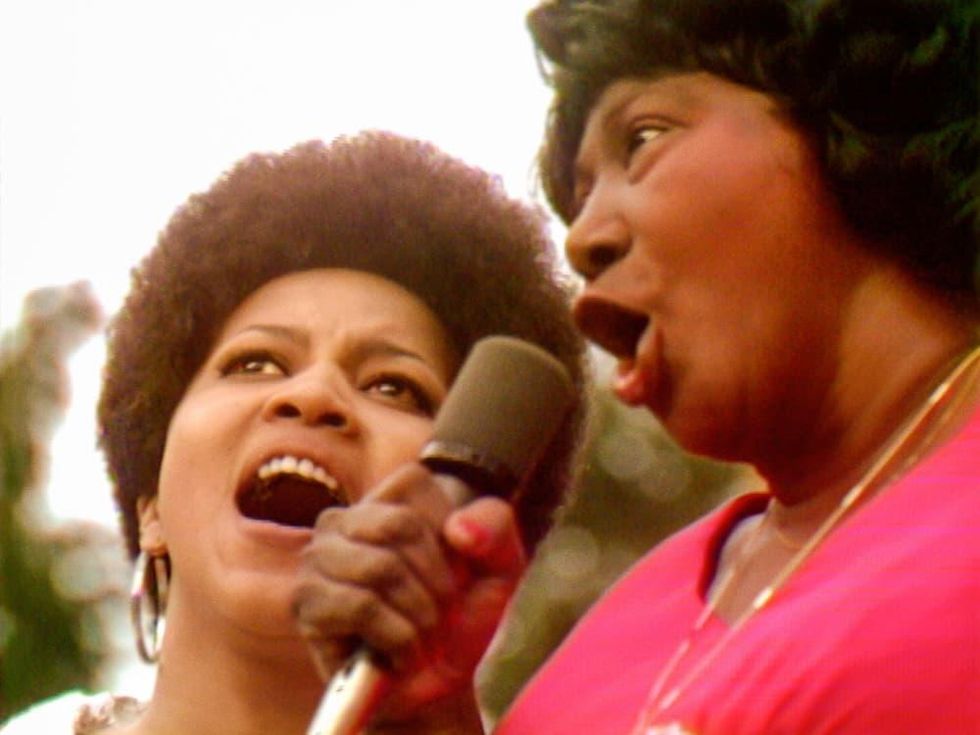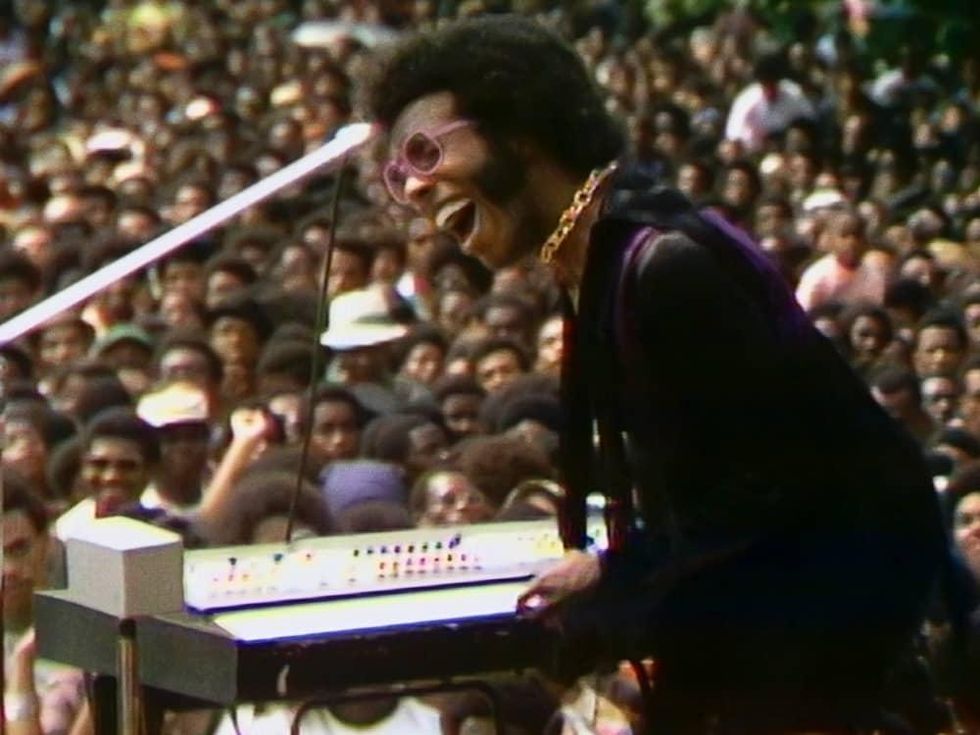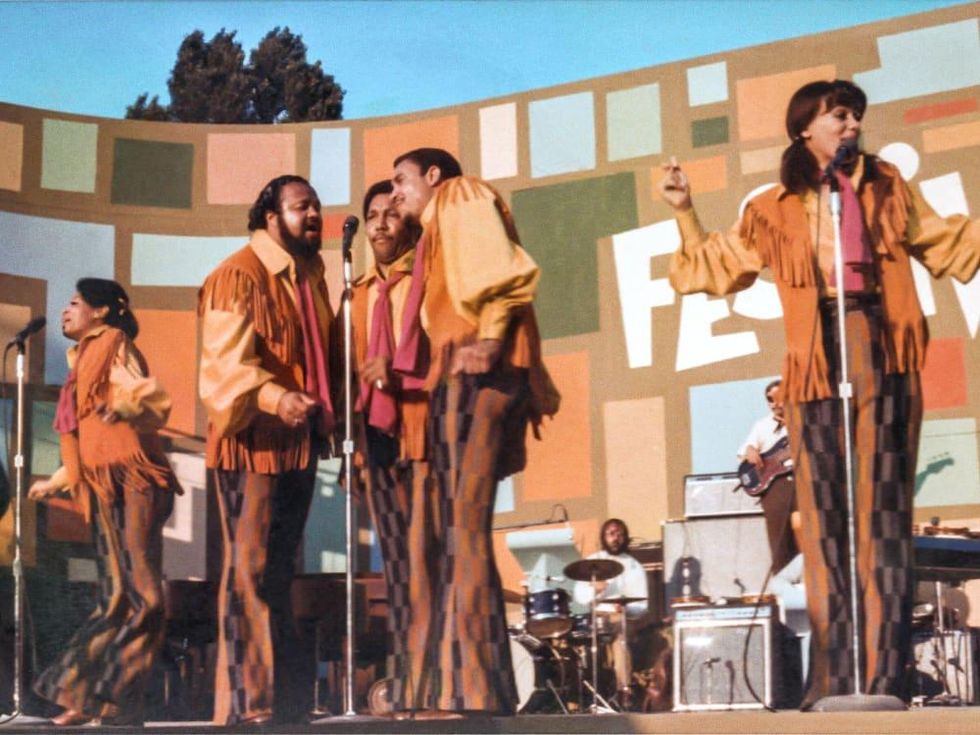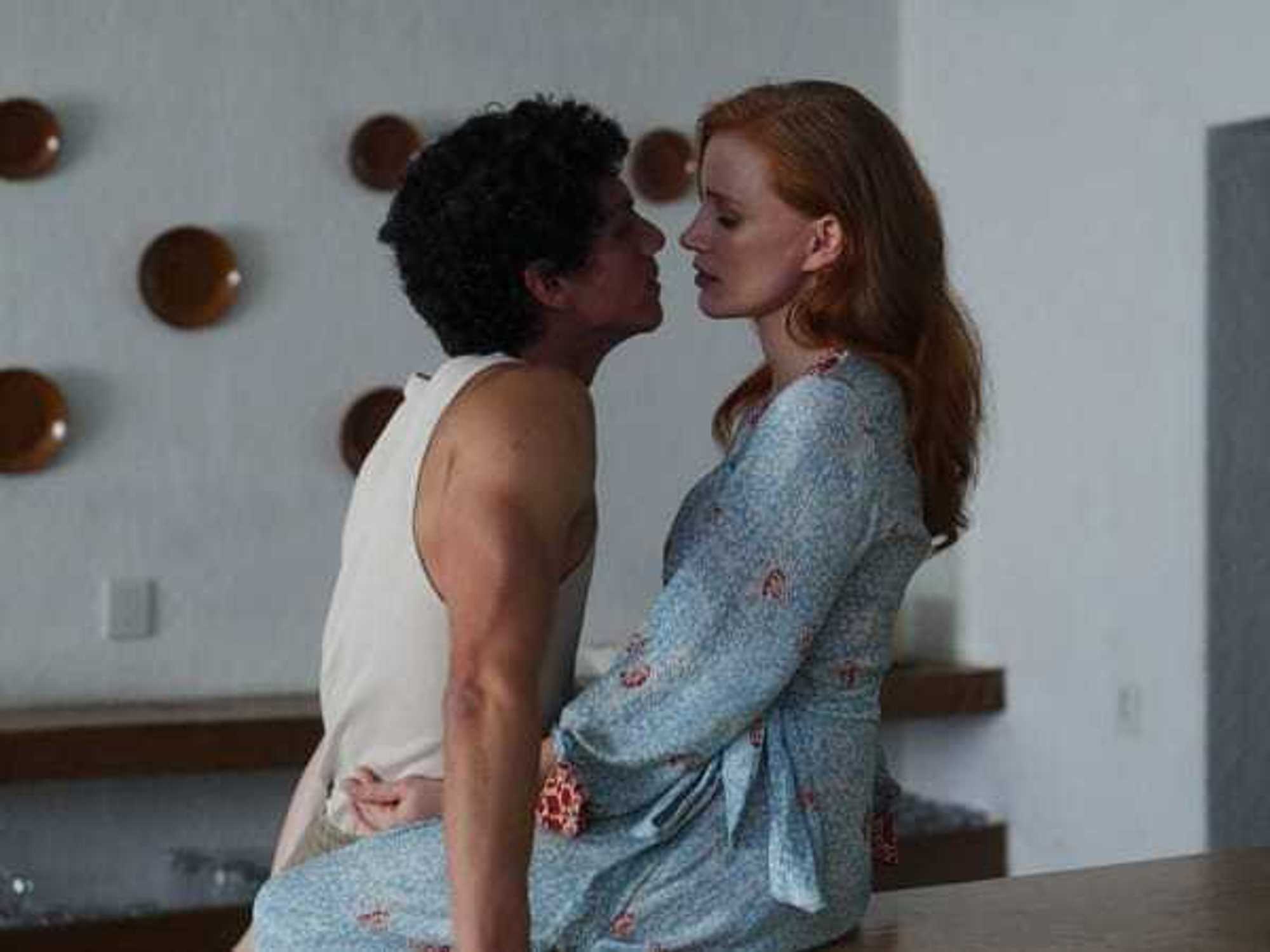Movie Review
Questlove's Summer of Soul shines a light on 1960s Black music and civil rights
At their best, documentaries can shine a light on people or issues that often go unexplored. And given the long history of systemic racism in the United States, it’s no surprise that the people and issues whose stories are not told as often are those of people of color. That can even be the case when the story involves some of the best-known Black people of the 20th century.
The summer of 1969 was when the much-publicized Woodstock music festival took place, but 100 miles south, at Mt. Morris Park in Harlem (now Marcus Garvey Park), another equally notable festival was taking place, one that has been mostly forgotten for over 50 years – until now. Footage of the Harlem Cultural Festival, which drew over 300,000 people over the course of multiple Sundays that summer, is finally seeing the light of day thanks to the new documentary, Summer of Soul (…or, When the Revolution Could Not Be Televised).
Directed by Ahmir “Questlove” Thompson of The Roots, the film is much more than just a concert film. It’s an immersive history lesson of what Black music looked like at the time, and how those artists and others were responding to the issues of the day, coming at the tail end of the civil rights movement of the 1950s and ‘60s. Facing “a sea of Black people,” as one interviewee tells it, a multitude of singers, bands, and other performers played music that spoke to the masses gathered in the park in variety of ways.
And what a lineup it was. A 19-year-old Stevie Wonder, just coming into his own after a decade as a young wunderkind, would show off his singing and instrumental skills (including drumming!). Other performers would include B.B. King, The 5th Dimension, Mahalia Jackson, Pops Staples and The Staples Singers, Gladys Knight & The Pips, Sly and the Family Stone, Nina Simone, and many more.
Each brought a wealth of experience and emotion to the stage, typified by an amazingly soulful gospel performance by the legendary Jackson and the up-and-coming Mavis Staples. Sly and the Family Stone subverted the notion of what Black music could be, delivering a raucous rock set. And Nina Simone, whose “Feeling Good” and “Don’t Let Me Be Misunderstood” are now regarded as classics, delivered songs like “To Be Young, Gifted & Black” and “Are You Ready?” to show how she was standing up for her people.
Thompson shows an expertise in storytelling, mixing and matching performances with interviews by the performers, attendees, and people like Al Sharpton, Lin-Manuel & Luis Miranda, Sheila E, and more to lend context to the footage and the time. His use of the footage is astonishing, as not only does he give a front row seat to some of the best musical acts of all time, but the clarity of most of the performances keeps them from feeling overly dated.
Aside from the music, one of the joys of the film is the presence of festival organizer Tony Lawrence, who is shown to be a ball of fire in his role as the emcee. He shows up in an array of outlandish outfits and with a wellspring of energy. He’s outspoken and good-naturedly jokes around with many of the people who grace the stage, including then-Mayor John Lindsay, a Republican who supported the festival who was said to be respected by the Black community.
With an eye on both the concerts and social justice, Summer of Soul showcases the enormous talent that performed during the Harlem Cultural Festival, and exposes the inherent racism that prevented the footage from being shown until now. It’s a stunner of a film, one that should go straight into the curriculum for students of music and history.
---
Summer of Soul opens in theaters and on Hulu on July 2.




